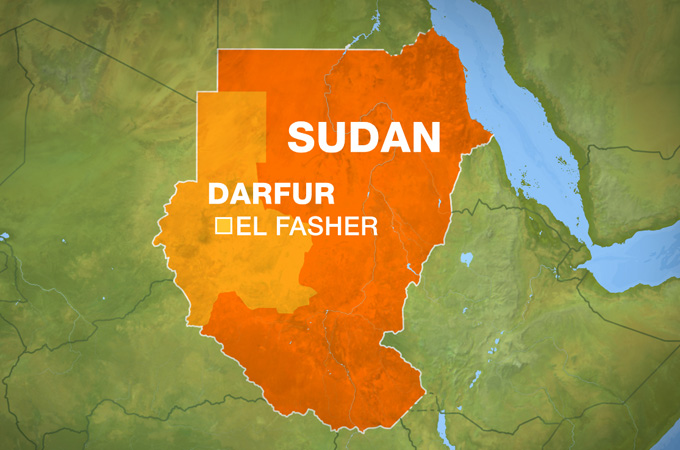Sudan’s army claims rebel deaths
Sudanese military says it has killed 40 rebels in clashes with coalition of Darfur militias, including JEM and SLA.

 |
| Rebels from the Sudan Liberation Army (SLA) signed a peace agreement with the Sundanese government in 2006 [EPA] |
The Sudanese government says that its forces have killed 40 rebels in clashes in northern Darfur.
A military spokesman, Captain Khalid Sawarmy, said that a field commander for the rebel Justice and Equality Movement (JEM), Mohamed Osman Janjaweed, was among the dead in Friday’s fighting.
According to the Sudanese army, two of its soldiers were also killed and 13 others injured.
Darfur rebels clashed with Sudanese government troops three days after announcing they had resumed ceasefire negotiations, rebel sources told Al Jazeera.
Thursday’s fighting was the latest setback for international mediators who have struggled to secure any lasting accord in more than seven years of fighting.
A JEM spokesman in Doha, Qatar, confirmed the fighting and said they captured “many” government soldiers and seized vehicles during the clashes.
JEM said government forces attacked them and fighters from other rebel forces near Dar al Salaam, 56km south of El Fasher, the capital of North Darfur, which is also used as a headquarters by international peacekeepers.
“What happened is that the government of Sudan moved troops into the area in order to kill more people and destroy more houses,” Ahmed Tugo, JEM’s chief negotiator who is involved in peace talks with Sudan in Doha, told Al Jazeera.
“On that basis we decided to move in and to stop what is going on. And on that basis we managed to defeat the government.”
No one from Sudan’s army was immediately available for comment.
Darfur has been in turmoil since 2003, when ethnic African rebels took up arms against the Arab-dominated government, accusing it of discrimination and neglect of their region.
The UN says some 300,000 people died 2.7 million fled their homes because of the conflict.
In 2009, the International Criminal Court (ICC) indicted Omar al-Bashir, the Sudanese president, for war crimes in Darfur and added charges of genocide later this year. But the president denies the charges and says only 10,000 were killed in Darfur.
Explaining circumstances surrounding Thursday’s fighting, JEM released a statement quoting one of its commanders, Ali Alwafi, saying the rebels had entered Dar al Salaam during the fighting.
 |
| JEM fighters said government forces attacked the group near Dar al Salaam, 56km south of El Fasher |
“For the first time, JEM troops fought shoulder to shoulder with forces belonging to Minni Minawi, Abdel Wahed Nur and others,” the statement said.
The statement refers to two factions of the rebel Sudan Liberation Army (SLA), loyal to Minni Arcua Minnawi and Abdel Wahed Mohamed al-Nur.
Talk of new alliance
Al Jazeera’s Mohamed Val, reporting from Khartoum, said it was the first time since 2004 that three major factions in Darfur fought side by side against the Sudanese army.
“It is a very important development. The question is, if they are also ready to sit around the same table for talks with the government – are they also going to co-ordinate their diplomacy?”
Al-Nur, who has spent many years exiled in Paris, has boycotted all peace negotiations. One of Al-Nur’s senior aides, Ibrahim al-Helwu, said the factions were considering forming an alliance.
Minnawi was the only rebel leader to sign a 2006 peace deal with Khartoum. Sudan’s army declared him a military target earlier this month, accusing him of breaking a ceasefire and plotting to join other rebels.
UNAMID, the African Union-UN operation protecting civilians in Darfur, said Sudan’s army attacked Minnawi’s forces several times over the past two weeks.
JEM announced it restarted ceasefire talks with Sudan’s government on Monday seven months after it walked out of the region’s tortuous peace process, hosted by Qatar.
Peace talks have coincided with a surge of fighting in the past in Darfur, as both sides try to demonstrate their strength and maximise territorial gains ahead of settlements.